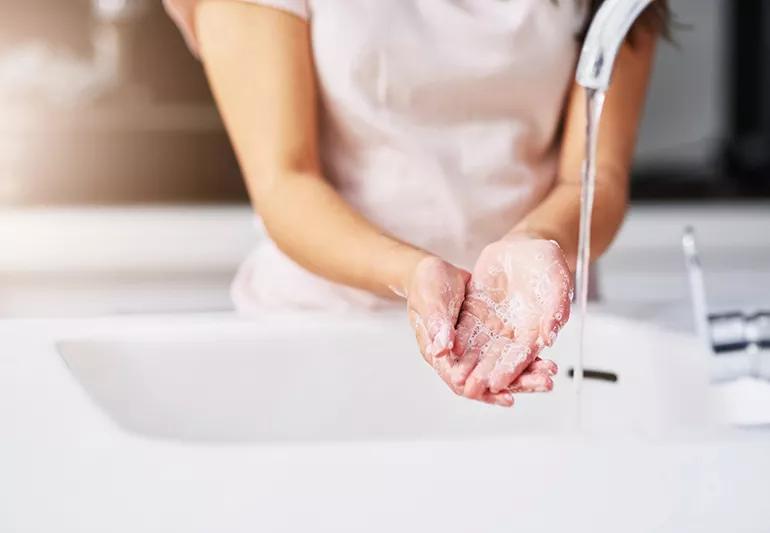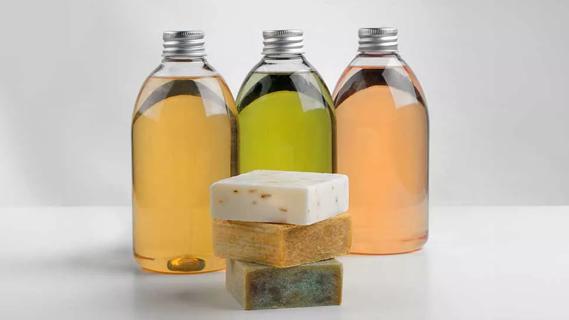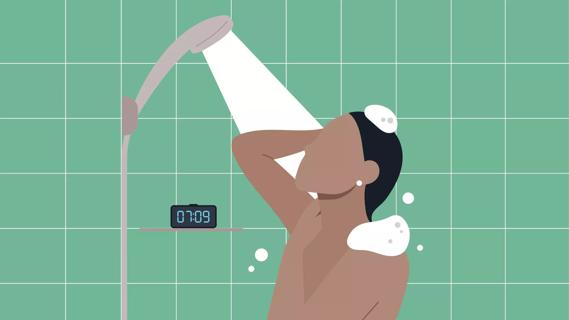Technique matters — and research suggests most of us still aren’t doing it right

Using the bathroom requires a lot of touching: Opening the door, lifting the lid, wiping and flushing. You’re guaranteed to get germs on your hands with each of these activities. And if you don’t wash your hands after using the bathroom, you risk contaminating everything (and everyone) you touch from then on.
Advertisement
Cleveland Clinic is a non-profit academic medical center. Advertising on our site helps support our mission. We do not endorse non-Cleveland Clinic products or services. Policy
Sharing isn’t always caring.
Washing your hands is important. It sounds obvious. In theory, it is obvious. Most of us know that it’s important to wash our hands after using the restroom. But it turns out we aren’t nearly as clean as we think we are — and a lot of people aren’t washing their hands after going to the bathroom.
In a 2013 study that examined the post-bathroom hand-washing behaviors of 3,749 people in the U.S., only 67% of them attempted to wash their hands with soap. Among the hand washers, only 5% actually washed properly with soap for the recommended amount of time. If that’s not enough to put you off your food, this will: A 2019 study found that an antibiotic-resistant form of E. coli is spread more often by poor toilet hygiene than by handling raw meat!
Has handwashing behavior improved since the COVID-19 pandemic began? Probably. But bad habits can be hard to break. And research suggests that we need periodic reminders about the importance of hand hygiene, especially during those times when we’re tired or stressed out. That’s why we asked family medicine doctor Daniel Allan, MD, to explain why washing up on your way out of the bathroom is so critical — and how to do it right.
Advertisement
How do we know that handwashing is important? We know because, unfortunately, plenty of people around the world aren’t able to properly clean their hands. According to a 2022 study by UNICEF, 25% of the world’s population still doesn’t have access to handwashing facilities with both soap and water in their homes. And the consequences are staggering. An estimated 1.4 million people — 400,000 of them children — die every year from diseases that could have been prevented with basic hand hygiene.
Let’s get into the specifics. According to the U.S. Centers for Disease Control and Prevention (CDC), germs like Salmonella, E.coli and norovirus (just to name a few) can get onto your hands after using the toilet or changing a diaper. Once those germs make it onto your hands, it’s only a matter of time until they make it onto other things, surfaces and people.
“You can leave the bathroom with twice the bacteria on your hands as when you entered,” Dr. Allan states. “Studies show credit cards, money and cell phones are contaminated with fecal matter.” And we’re not talking about a few germs, here. Another study found that elevator buttons have more bacteria on them than toilet seats do!
Now that we’ve given you the good news, it’s time for the good news: People who wash their hands correctly have lower rates of diarrhea, viral infections (like the common cold) and foodborne illnesses. The CDC says proper hand hygiene also reduces kids’ absenteeism at school from gastrointestinal illnesses by at least 29%.
Given that somewhere in the neighborhood of 95% of people probably aren’t washing their hands correctly, here’s a quick lesson, compliments of Dr. Allan:
Advertisement
If you’re feeling savvy, use the towel to open the bathroom door on your way out. That could limit contamination elsewhere.
By now, we’ve firmly established that you should wash your hands after going to the bathroom. But that’s not the only time it’s important to get your scrub on. The CDC recommends turning on the tap:
Advertisement
Hand sanitizer sometimes seems easier than washing your hands — and in certain situations, it’s the only option available. But is it an adequate replacement for handwashing?
Dr. Allan’s verdict: “Something is better than nothing — just be sure the sanitizer has at least 60% alcohol.”
There are a few downsides to hand sanitizers, however. They:
If you’re in a pinch and alcohol-based hand sanitizer is your only option, follow these steps:
Life is busy. And it’s understandable that our post-bathroom handwashing routines aren’t always perfect. It’s understandable, but it isn’t great — for our health or anybody else’s.
So, if you’re fortunate enough to have access to a sink, soap, clean water and fresh towels, take a moment (20 seconds, to be precise) to really enjoy them! Being clean is a wonderful feeling — and it’s just what the doctor ordered.
Advertisement
Learn more about our editorial process.
Advertisement

Bathing once a day is the general guidance, but you could also have reasons to soap up twice a day or not at all

You’re sharing your sheets with dust mites, bacteria and lots of dead skin, so you’ll want to keep your bedding fresh

You may notice itching, redness and swelling after wearing or using laundered items

We don’t fully understand how cleanliness impacts immune system development, but we do know that preventing illness is important

How often you lather up your locks can depend on various factors, like hair type, age and ethnicity

An icy blast may boost mental clarity, increase circulation and give your skin a little glow — but don’t overdo it

This olive oil-based soap is generally mild and safe when diluted

It’s a wash — when you bathe is a personal preference

The tropical fruit is a good source of antioxidants and vitamin C

Most people fall asleep within 10 to 20 minutes, but if your experience is different, adjusting your sleep schedule may help

Exploring your hidden side can lead to better understanding of what makes you tick